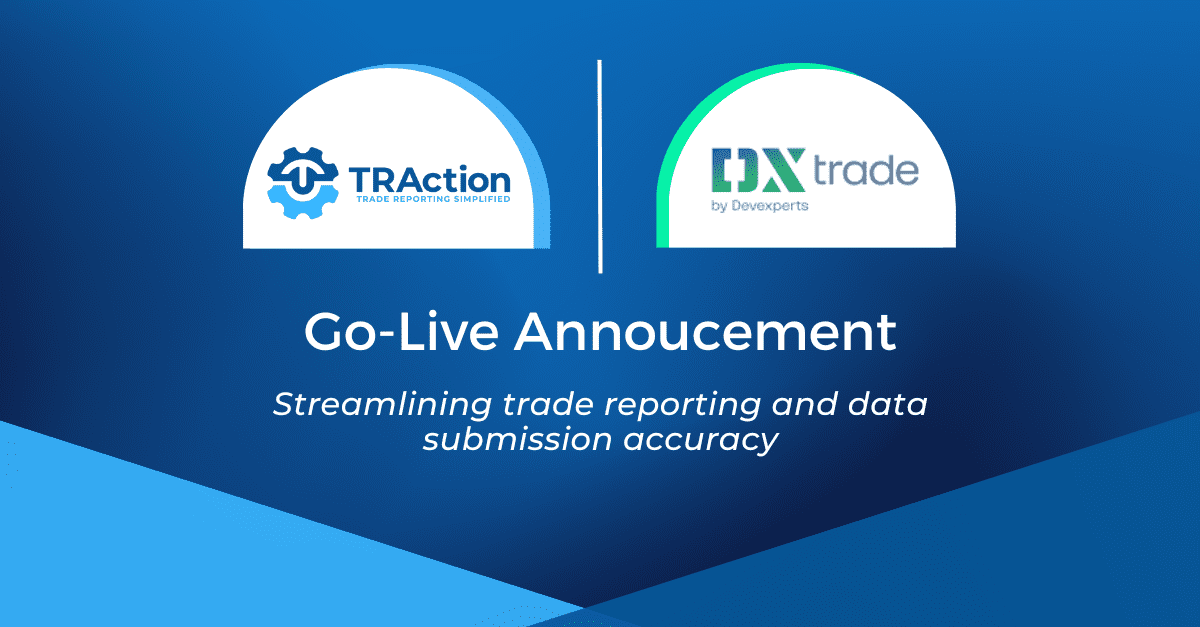Under ASIC’s Reporting Rules, most Australian margin FX and CFD brokers are Reporting Entities that are required to report their transactions as they are considered to be over-the-counter (OTC) derivatives.
We take a look at what a trade repository or ASIC can surmise about your business from the data they receive.
Q: Does the data identify my clients?
A: In cases where the client is an individual (natural person), the ASIC reporting rules require only a unique ID to be input as an identifier along with the name. No names phone numbers, emails or addresses are required in the reports.
ASIC’s FAQs state ”Where a single field is used for reporting of an identifier and a name, the names of the counterparty, beneficiary or other person should be concatenated together with the identifier, using the following format:
[identifier][delimiter character][name of counterparty or beneficiary]”
Likewise, where the client is a business, you are required to report only information which is otherwise publicly available. No phone numbers or emails are required in the reports.
Q: I’d like to keep my trade volume figures private, are these exposed in the data I report?
A: The transaction volumes report will be available to the trade repository and ASIC. The volumes open and closed through the day are reported often along with a snapshot of the open positions at the end of the day.
Trade repositories are required to publish aggregated statistics about the data they have received each week and this is made available on their websites at no charge.
Q: What is the definition of “end of day”?
A: There isn’t one. We suggest you choose an end of day that aligns with the end of day on your servers and your current reporting processes and stick to it (subject to daylight savings which shifts the end of day for many brokers twice a year by one hour).
Q: Could the data reveal the profit or loss of my firm?
A: Not necessarily. It’s likely that ASIC will not have full details to conduct profitability analysis on your firm and in any event, are unlikely to be using the data to generate this type of analysis unless you come under detailed regulatory scrutiny.
Q: Can ASIC work out whether my clients are trading profitably?
A: Yes, ASIC can extrapolate profitability from the transactions reported on individual clients.
Q: Will the information I provide identify whether we are an STP broker or running a book?
A: Not entirely. As most brokers will benefit from single sided relief for at least some of their hedging counterparties (and as outlined above), ASIC will be unlikely to have to the details of all or some of their hedging trades (those done with another reporting entity). Therefore, under the current reporting rules there would be no possible way to extract or calculate the entire ‘risk model’ of the broker from the data and trades reported.
Under ASIC Rewrite, there will be changes from 20 October 2025 to the single-sided relief provisions and these will become more limited, meaning ASIC will have oversight of a greater amount of the hedging activity conducted by Australian firms.
Q: Can ASIC reconcile our client money on trust with the collateral figures from reported trades?
A: Not really, as the reports are only for clients that are trading as opposed to all clients with an account balance. Due to an anomaly in the legislation, brokers with retail clients or clients that are not Reporting Entities don’t currently have to report how much collateral was posted by the client. Brokers only have to report the collateral that they post for trades, i.e. hedging trades. However this will change under ASIC Rewrite and brokers will have to report margin/collateral received.
Again, single-sided relief may apply to your hedging trades meaning the collateral you have posted with your hedging counterparty doesn’t get reported to any trade repository. Similarly, it is not possible for ASIC to know from the reported trades whether you have posted client money (under the Corporations Act provisions allowing you to do so) or firm capital with your hedging counterparties.
If you have any other concerns about the data which needs to be reported, don’t hesitate to be in touch with us to discuss further.




